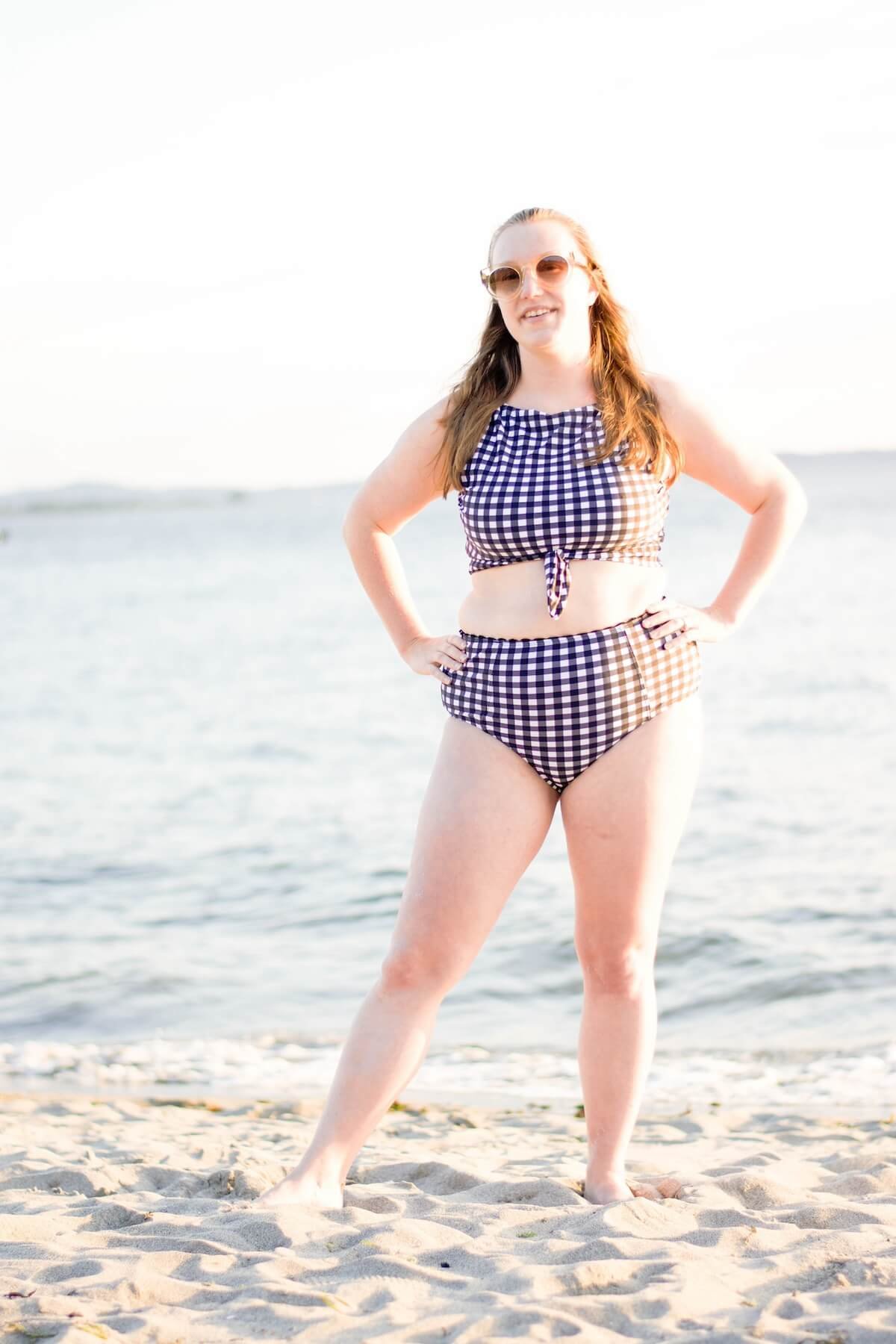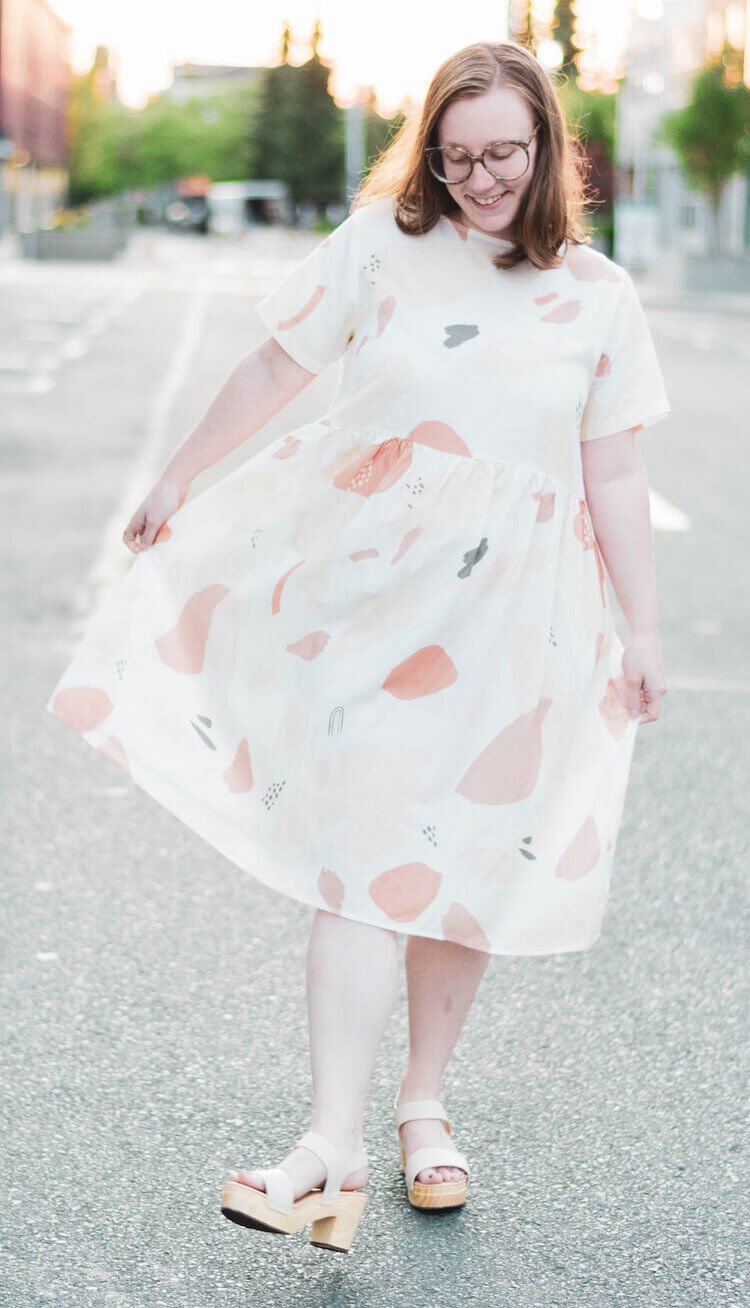5 Brands Using Recycled Water Bottles to Make T-Shirt & Tank Tops
The notion of a T-shirt made out of plastic may seem new, but it’s not. Clothing has been made out of a kind of plastic, derived from the fossil fuel petroleum, for years: namely synthetic fabrics like polyester, nylon, and acrylic.
These synethic materials are particularly popular in workout and athletic clothing. “Plastic T-shirts” are getting attention these days because fashion brands are increasingly turning to recycled plastic in an effort to curb the use of virgin materials made from fossil fuels plumbed from the Earth’s depths.
Many different forms of post-consumer plastic is being used, from recycled water bottles to fishing nets. Let’s explore the sustainability of recycled plastic bottles in clothing and meet some sustainable clothing brands using this material.
Plastic has only been around for about a hundred years, but in that time it has had a massive impact on the planet. One of its greatest qualities – its durability – is also its worst, because when it ends up in the environment, it stays there, taking decades and even centuries to break down and leaching chemicals as it does.
When it comes to clothing – and even other items that use fabric such as bedroom and bathroom accessories – natural materials like cotton, linen, and hemp are usually touted as being more sustainable and eco-friendly.
But synthetics have their place, especially as their properties – such as stretchiness, durability, and water-resistance – make them better suited for items such as exercise gear and raincoats.
While plastic use is a great concern overall, we need to focus on issues such as extracting petroleum to make virgin plastic and producing, and throwing away, single-use items. Between 1950 and 2015, 8.3 billion tons of plastic were produced with only 6% recycled. We need to urgently produce less plastic, but also recycle and repurpose what is already out there.
This post does contain some affiliate links which means The Honest Consumer will receive a commission if you decide to purchase, however, at no additional cost to you!
How Are T-Shirts Made from Recycled Water Bottles?
Plastic bottles are made from PET (polyethylene terephthalate), a clear, strong, and lightweight plastic that is fully recyclable. Bottles are usually recycled back into bottles but they can also be repurposed for clothing by making recycled polyester or rPET.
how plastic water bottles are made into fabric for t-shirts
It all starts with recycling bottles which are sorted and stripped of anything that can’t be processed like labels and caps. The bottles are washed and shredded into plastic flakes, which are melted into pellets. These pellets are spun into fabric that can be used for a final product like T-shirts, dresses, leggings, and other sustainable clothing options.
Is rPET More Eco-Friendly than Using Virgin Polyester in Clothing?
Using rPET is a more eco-friendly solution than producing virgin polyester because it uses what is already available instead of extracting non-renewable resources (like oil for plastic production) from the Earth. Making recycled polyester releases fewer carbon emissions and uses less energy and water than virgin polyester. By recycling plastic, it also helps divert this potential waste from waterways, landfills, and incinerators.
However, this solution is not a cure-all. Clothing made from recycled materials may increase demand, which is the opposite of what we should be aiming for.
It can also distract from the reality that virgin fabrics are still being produced and that brands and textile mills are focusing on making a more marketable fabric as opposed to finding ways of making manufacturing more energy efficient.
Our prerogative as consumers should be to purchase less, not more, nor to carry on as usual just because newer products are more eco-friendly. A more eco-friendly material like rPET still requires water and energy to produce, and the clothing made from it still sheds microplastics when washed, contributing to plastic pollution.
How Can I Avoid Microfiber Shedding When I Wash My T-Shirt?
When washing your t-shirt made from recycled plastic water bottles be sure to get a microplastic catcher such as a Cora Microfiber Laundry Ball, Guppyfriend Washing Bag, or Girlfriend Collective’s Microfiber Filter. These help catch the micro plastics from polyester clothing keeping them out of water.
What About the End of Life for Fabrics Made from Recycled Water Bottles?
Furthermore, while PET can be recycled over and over again, this is not always the case when it is made into a T-shirt or other garment. Plastic bottles can be recycled back into plastic bottles multiple times, but recycled polyester is often mixed with other materials.
This makes the resulting garment more difficult to recycle because the materials either cannot be separated or if they can, it is very expensive to do so and uses a lot of energy.
At the end of your recycled polyester t-shirt’s lifecycle consider upcycling it into something else or exploring For Days Take Back Bag and Ridwell’s services for textile recycling options.
5 Clothing Brands Using Recycled Water Bottles for T-Shirts, Tanks, and Tees
These are a few eco-friendly clothing brands creating high quality sustainable t-shirts from recycled water bottles. Check out these ethical clothing brands and shop responsibly!
Give a Damn Goods Graphic T-Shirts Made from Recycled Water Bottles
Give a Damn Goods graphic t-shirts are designed to inspire mindful conversation. With bold designs such as Give a Damn and Star of the Shit Show this brand is all about self love & being part of the greater good.
Give a Damn Goods t-shirts are designed by the founder and then made in partnership with GOEX who crafts clothing with fair trade practices. Each shirt uses five plastic water bottles and features tri-blend fabrics that includes the recycled polyester, cotton and rayon.
The fabric is made in the United States and then ethically cut and sewn in Haiti. These eco-conscious graphic t-shirts are $30 and recycled polyester sweatshirts can be found for $50!
GOEX’s Fair Trade Basics Made with Recycled Materials
From short sleeves to long sleeves, tanks to tees to sweaters, GOEX is all about quality basics. And they’re all about empowering workers through the production of their apparel. A member of the Fair Trade Federation and the Social Enterprise Alliance, they promote fair wages and dignified employment for their workers in Haiti and the USA.
By recycling plastic bottles, they make shirts from a blend of recycled polyester, rayon, and cotton: each of their eco-triblend shirts is made using approximately five plastic water bottles. Their range includes shirts for men, women, and children, as well as unisex options, and they also offer T-shirt printing – either from their own creations or your own.
Tentree’s Comfortable Clothing Made from Recycled & Natural Materials
tentree is an athleisure brand is all about the trees. For every purchase you make, ten trees are planted. Using materials like TENCEL™, organic cotton, hemp, and recycled polyester made from plastic bottles, they seek to lessen their impact on the planet. Their tanks and tees feature blended options or you can opt for items made from 100% organic cotton.
Tentree extends its sustainability aims by making use of coconut and corozo for their buttons, and cork for their tabs. They’ve ditched plastic bags for packaging, using a rolling method instead, securing your purchase with recycled paper twine. Plus they plant ten trees for each order!
Allbirds: T-Shirts & Tanks: Recycled Materials Mixed with Natural
Allbirds specializes in footwear but also produces athleisure apparel like tees and tops. Their Natural Run tees and tanks are made from a blend of natural materials and recycled synthetics. This sustainable clothing brand also has 100% organic cotton tees.
Allbirds Natural Run Tank
Their eco-conscious tops can be purchased for $38-$68. To further their sustainability efforts Allbirds has a platform, dubbed ReRun, through which you can buy sneakers that have slight imperfections or are gently used, or you can trade in your own Allbirds shoes, keeping these items and materials circulating instead of ending up in landfills, incinerators, or waterways.
Their sneakers also make use of recycled synthetics with a recycled plastic bottle producing a pair of Allbirds laces. Packaging for both apparel and footwear is FSC-certified and recyclable.
Girlfriend Collective’s Recycled Activewear
Aiming to keep plastic water bottles and fishing nets out of landfills and waterways, Girlfriend Collective recycles these materials into polyester for their clothing including tanks and tees.
Their materials are blended, but you have the option of sending in old Girlfriend garments to be reused through their takeback program, ReGirlfriend.
Girlfriend Collective furthers their sustainability aims by using eco-friendly dyes and packaging that is 100% recycled and recyclable. Their recycled fabric is certified Standard 100 by Oeko-Tex and is BPA-free. They also sell microfiber filters for washing machines. Girlfriend Collective’s tops made from recycled water bottles can be purchased from $35-$65.
Are Some Recycled Clothing Brands More Sustainable Than Others?
Answering this question really depends on investigating what else the brand is doing. Are they following other sustainable and eco-friendly practices, besides using what is ostensibly a more responsible material?
Merely using rPET to make T-shirts does not equate to being a sustainable or eco-friendly brand. Here are a few things to consider when buying a T-shirt, or any item of clothing, made from recycled water bottles.
What other fabrics does the brand use? Natural materials have a lot of benefits, both for your health and the planet’s.
You can look for T-shirts made from unblended fabrics that are easier to recycle, but the reality is that many clothes are made from blended materials to make the best of each fabric’s properties and create a garment that is more comfortable and durable.
Look for brands producing made-to-order batches as opposed to mass producing their clothing, as this cuts down on waste.
Invest in a wash bag or microfiber filter for your washing machine to better manage microplastics.
How does the brand treat its workers: do they ensure fair wages, good working conditions, and equal opportunities?
Be wary of toxic finishes and treatments like water-repellent or anti-microbial features.
Are the dyes used eco-friendly and non-toxic?
Support locally sourced and made clothing. With production often moved overseas in search of cheaper labor and materials, as well as less stringent environmental and labor laws, this can be a challenge.
Look for takeback programs for second-hand clothing.
Find out what other eco-friendly practices brands are implementing such as cutting down on waste, treating wastewater, reducing water usage, and becoming more energy efficient.
Hopefully you've learned a bit more about the sustainability and environmental impact of recycled polyester and are able to decide if this fabric will be part of your sustainable fashion journey!
For more tips & tricks on sustainable living be sure to follow The Honest Consumer on social media, subscribe to our newsletter, & check out the Ethical & Sustainable Brand Directory.


















